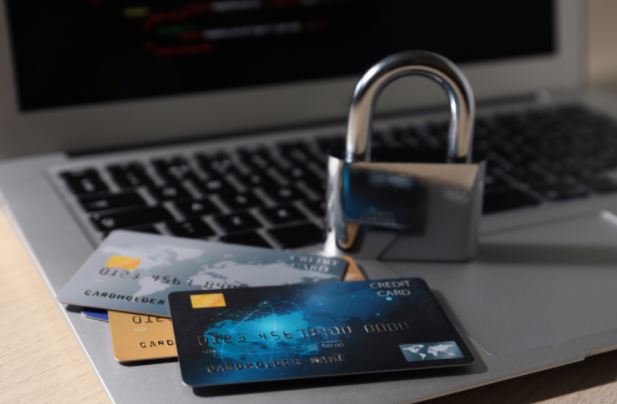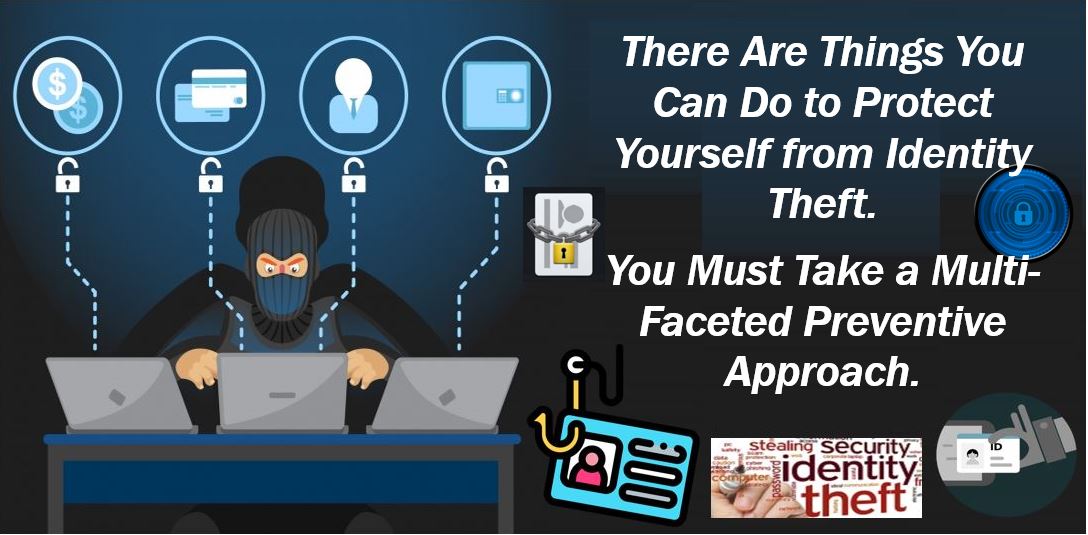Last week, your next-door neighbor told you about how someone stole her identity and used her name and credit to buy a really expensive computer.
In addition to being sympathetic to your neighbor’s plight, her tale got you to thinking: how safe is your own personal information, and how can you prevent identity theft from happening to you?
In order to prevent identity theft, it’s important to start by looking at how it can happen, as well as what steps to take if you find out that your personal information has been compromised.

How Thieves Can Steal Your Identity
Crooks use a variety of methods to steal your identity. As Consumer.gov notes, this can include stealing your mail or rifling through your garbage or recycling cans to get account numbers; sending out phishing emails that may trick you into revealing personal info; taking your wallet or purse and/or stealing your account numbers from a medical or business office.
Thieves will then use this information to gain access to your bank account, open a new line of credit in your name, purchase costly items (like the fancy computer in your neighbor’s name) and/or use your name if and when they are arrested.
Tips on Preventing Identity Theft
In order to help ensure that your identity is not stolen, it is important to take a multi-faceted preventive approach. As Nerd Wallet notes, start by keeping your Social Security number as safe as you can — when you are asked for it, ask why the company needs it and never carry your physical card with you.
Also, freeze your credit with all of the major credit bureaus so a new credit file cannot be opened in your name. Be aware of what phishing e-mails and telephone calls are like; if you receive what looks to be a legit e-mail from your bank, call them to see if they actually sent it.

Also, pick up your mail every day from the box, and if you are going out of town, contact the post office to put your mail deliveries on hold. Instead of tossing credit card applications and other sensitive mail into the trash or recycle bin, invest in a shredder and use it on these credit card offers, as well as old bank statements and bills. Simply tearing up these envelopes will not do the trick, as thieves can very patiently put them back together like a puzzle and then access your info.
Finally, check your bills and bank statements very carefully and check your accounts online at least every other day; be on the lookout for things you did not purchase or for withdrawals or other charges you do not recognize.
What to Do If It Happens to You
If you discover that your identity has been stolen, it is important to immediately take a number of steps to help remedy the situation before it gets out of hand. Start by notifying your banks and your credit card companies, and also contact one of the three main credit bureaus and ask to have a fraud alert added to your account.
Contact the local police department and ask to file a report and then also change every single account password that you have. You can also alert your doctor, utility company and other places that have your personal data on file as to what is happening and ask them to alert you to any suspicious activity.
To help with this process even more, consider investing in an identity theft protection plan with a company like LifeLock; thanks to their identity protection deals, this is a very budget-friendly way to protect your personal data. The team from LifeLock will monitor your data 24/7 and immediately let you know if someone has applied for credit in your name.
Your Data Can Stay Safe
When it comes to identity theft, understanding how crooks operate is a great first step in preventing it from happening to you. Then, take any and all necessary steps to make your data as safe as possible and back up your information with an identity theft protection plan that will let you know if anything is amiss. Also, you might want to share these tips with your neighbor — she will be grateful for the advice.
Interesting related article: “What is Cybersecurity?“

